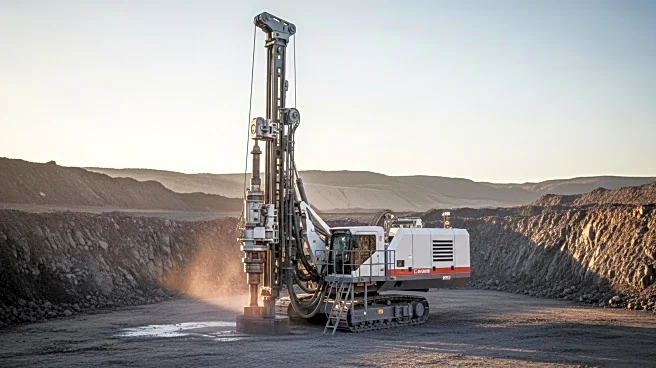What is the story about?
What's Happening?
McEwen Copper Inc has released a feasibility study for its Los Azules copper project in Argentina, highlighting the potential use of innovative technologies. The study suggests employing Nuton leaching, trolley assist haulage, and battery-electric vehicles to enhance sustainability and economic returns. The project aims to produce high-purity copper cathodes with reduced environmental impact, utilizing renewable energy and minimizing water usage. The study outlines a 21-year mine life with significant copper production and plans for carbon-neutral operations by 2038.
Why It's Important?
The adoption of new technologies at Los Azules could set a precedent for sustainable mining practices, reducing the environmental footprint of copper production. The project's focus on renewable energy and reduced water usage aligns with global efforts to transition to low-carbon economies. Successful implementation could enhance McEwen Copper's reputation as a leader in responsible mining, potentially influencing industry standards and attracting investment.
What's Next?
McEwen Copper plans to continue developing electrification strategies and exploring emerging technologies for the project. The feasibility study outlines a construction start in 2026, with copper production expected by 2030. The company is also considering financing proposals from major OEMs to support equipment and infrastructure development.
Beyond the Headlines
The project highlights the growing importance of sustainability in the mining industry, reflecting broader societal shifts towards environmental responsibility. The integration of advanced technologies could drive innovation and efficiency, potentially transforming traditional mining practices.
















